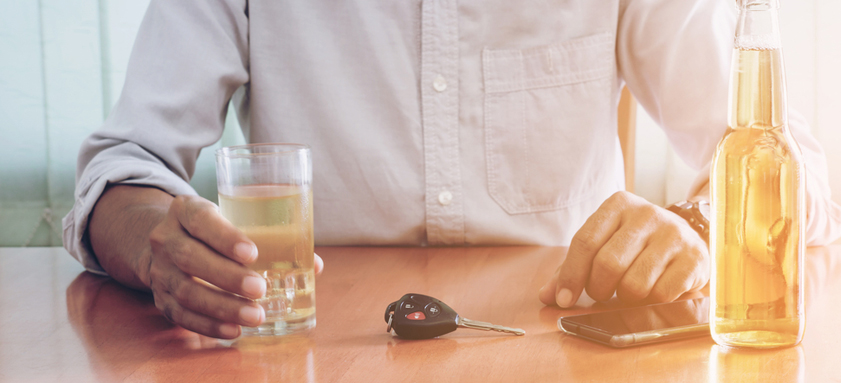DUI & Over 80 Defence Lawyer in Toronto
Drinking and driving offences are among the most common charges laid by police; according to Statistics Canada, they make up more than 10% of all criminal charges, and over 50,000 trials across Canada each year. There are several reasons for this. One is the “zero tolerance” policies that governments and police departments have put in place in recent years. Another is that drinking and driving is an activity that cuts across all lines in society: socio-economic, cultural, and age.
The penalties for drinking and driving offences are severe. Even on a first offence, you will be convicted and burdened with a criminal record.

Your driver’s licence will be automatically suspended for a year; and you will have to pay a fine of at least $1,000. In addition, your insurance rates will go up significantly. For second offences or higher, the minimum penalties include jail time.
Because these penalties are automatic minimum penalties, and because of the government’s zero-tolerance policies, there is little room for negotiation, and these cases tend to go to trial far more often than other cases. Very few people in society today can afford to have a criminal record, or to lose their licence for a year.
Drinking and Driving Offences/DUI
There are three main drinking and driving offences in the Criminal Code: Impaired Driving; “Over 80”; and Refusing to Provide a Breath Sample.
Impaired Driving means that you were operating a motor vehicle while your ability to do so was impaired by alcohol or a drug. Impairment can be determined in a number of ways: from the pattern of driving; by police-administered sobriety tests; or by physical indicia such as slurred speech, red-rimmed watery eyes, or unsteadiness.
Over 80 means that you were operating a motor vehicle while your blood alcohol concentration (BAC) was over the legal limit of 80 mg of alcohol in 100 mL of blood. The police will conduct a scientific analysis of seized samples of your breath or blood to determine your BAC at the time of driving.
Refusing to Provide a Breath Sample means that you did not cooperate in providing breath samples so that your blood alcohol concentration could be analyzed. The legal analysis will focus on what point the inability of the police to obtain a sample is due to the unwillingness of the subject, and the reasons for the refusal.
The Criminal Code definition of some of these offences is set out below:
-
320.14(1) Operation while impaired– Everyone commits an offence who
- Operates a conveyance while the person’s ability to operate it is impaired to any degree by alcohol or a drug or by combination of alcohol and a drug;
- Subject to subsection (5), has, within two hours after ceasing to operate a conveyance, a blood alcohol concentration that is equal to or exceeds 80 mg of alcohol in 100 mL of blood;
- Subject to subsection (6), has, within two hours after ceasing to operate a conveyance, a blood alcohol concentration that is equal to or exceeds the blood drug concentration for the drug that is prescribed by regulation; or
- Subject to subsection (7), has, within two hours after ceasing to operate a conveyance, a blood alcohol concentration and a blood drug concentration that is equal to or exceeds the blood alcohol concentration and the blood drug concentration for the drug that are prescribed by regulation for instances where alcohol and that drug are combined.
320.15(1) Failure or refusal to comply with demand– Everyone commits an offence who, knowing that a demand has been made, fails or refuses to comply, without reasonable excuse, with a demand made under section 320.27 or 320.28.
320.16(1) Failure to stop after accident– Everyone commits an offence who operates a conveyance and who at the time of operating the conveyance knows that, or is reckless as to whether, the conveyance has been involved in an accident with a person or another conveyance and who fails, without reasonable excuse, to stop the conveyance, give their name and address, and, if any person has been injured or appears to require assistance, offer assistance.
320.18(1) Operation while prohibited– Everyone commits an offence who operates a conveyance while prohibited from doing so
(a) by an order made under this Act;
(b) by any other form of legal restriction imposed under any other Act of Parliament or under provincial law in respect of a conviction under this Act or a discharge under section 730.
Preparing Your Defence in a Drinking and Driving Case
Drinking and driving cases are complex, especially in “Over 80” cases, because the evidence is based on scientific analysis of your breath or blood by a machine, and because the rules are lengthy and difficult to understand for people who are not lawyers or scientists. Take for example just one sub-section of the Criminal Code rule relating to the evidence from breath and blood samples:
- 320.31(1) Breath samples– If samples of a person’s breath have been received into an approved instrument operated by a qualified technician, the results of the analyses of the samples are conclusive proof of the person’s blood alcohol concentration at the time when the analyses were made if the results of the analyses are the same- or, if the results of the analyses are different, the lowest of the results is conclusive proof of the person’s blood alcohol concentration at the time when the analyses were made- if
- before each sample was taken, the qualified technician conducted a system blank test the result of which is not more than 10 mg of alcohol in 100 mL of blood and a system calibration check the result of which is within 10% of the target value of an alcohol standard that is certified by an analyst;
- there was an interval of at least 15 minutes between the times when the samples were taken; and
- the results of the analyses, rounded down to the nearest multiple of 10 mg, did not differ by more than 20 mg of alcohol in 100 mL of blood.
(2) Blood samples- concentration when sample taken– The results of an analysis made by an analyst of a sample of a person’s blood is proof of their blood alcohol concentration or their blood drug concentration as the case may be, at the time when the sample was taken in the absence of evidence tending to show that the analysis was performed improperly.

Because of the seriousness and complexity of these criminal cases, you need a lawyer who knows how these cases are investigated and prosecuted, and who has a great deal of skill and experience in defending them. At the same time, the complexity of the rules and evidence in these cases presents an opportunity to win that is quite different from other types of cases, such as where credibility is central, for example. Because the Crown bears the burden of proof, any break in the chain of evidence between the observations of the witnesses, and the analysis of the breath or blood samples, might result in an acquittal. If the police did not provide you with an opportunity to consult counsel, or did not have proper grounds to stop your car, your constitutional rights might have been violated, and the case might be dismissed.
As with all criminal cases, early, detailed and thorough preparation is the key to a successful outcome.
At The Defence Group, we will begin preparing your case by taking you through all of the details of what happened, including the nature, quantity and timing of any drinks that you had, the circumstances surrounding the driving, and the conduct of the police. We will analyze all of the evidence that the police and Crown have in their possession, as well as any information that we gather privately, from witnesses or other sources. We will also work with a forensic toxicologist to determine whether the screening device or the Intoxilyzer machines used by the police were operating properly, based on calibration logs and maintenance records. The toxicologist will also analyze alternative drinking scenarios to help us prepare our strategy. We can also engage an expert to perform tests to determine your actual rate of alcohol elimination, which might differ from the average rates used by the police. There are a multitude of techniques and strategies that we can employ, tailored to fit the specific details of your case.
The law changes quickly in the area of drinking and driving, and you need a law firm that keeps up to date and who can take advantage of these opportunities as they arise. Taking this kind of pro-active approach will often win the case, and save you a great deal of time and money as well.

